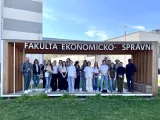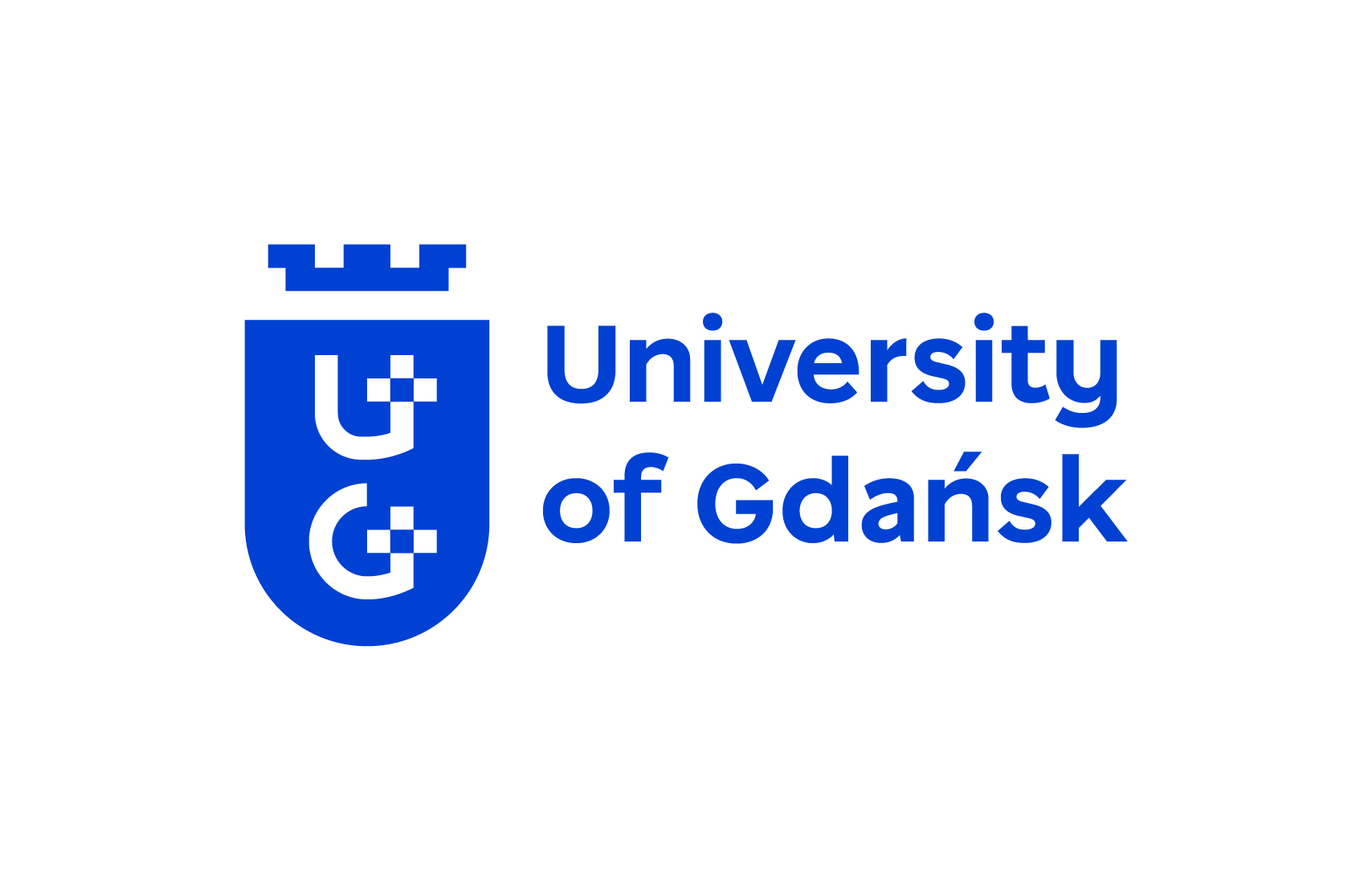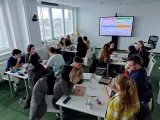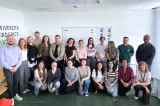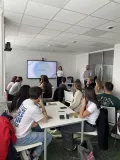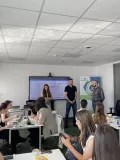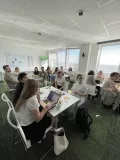From 24 March to 18 April 2025, the Faculty of Economics and Administration of the University of Pardubice hosted the international educational project BIP Erasmus+ REGIONS, whose main theme was regional development, resilience and sustainability in the context of current global challenges.
The BIP Erasmus+ REGIONS took place online (24 March - 11 April 2025), the full-time part
in Pardubice (14 April - 18 April 2025). The course was designed for students and academics from partner universities in Spain and Poland, focusing on the analysis of the responses
of European regions to environmental, economic and social challenges.
The programme offered participants the opportunity to gain a deeper understanding
of how European regions respondto climate change, economic fluctuations and social challenges. Examples of good practice, approaches to regional policy-making and the motivations of different actors in innovation ecosystems were discussed.
The course included interactive lectures, workshops, team projects and presentations
of student outputs. The thematic content included the basics of project management, principles of circular economy and analysis of regional resilience in different socio-economic conditions.
In addition to the academic part, there was also an accompanying programme that included, for example, a team “campus game”, a pub quiz or a trip to Prague. Thanks to this, participants could not only deepen their knowledge, but also establish new international contacts and get to know Czech culture.
We would like to thank our partners within - University of Gdansk and Universida de Vigo, and we look forward to further cooperation.
| Files for download | Size |
|---|---|
| BIP Regions - pdf | 1.92 MB |
| Files for download | Size |
|---|---|
| REGIONS annotation - pdf | 2.49 MB |
| REGIONS timetable - pdf | 250 kB |
| REGIONS booklet - pdf | 4 MB |
